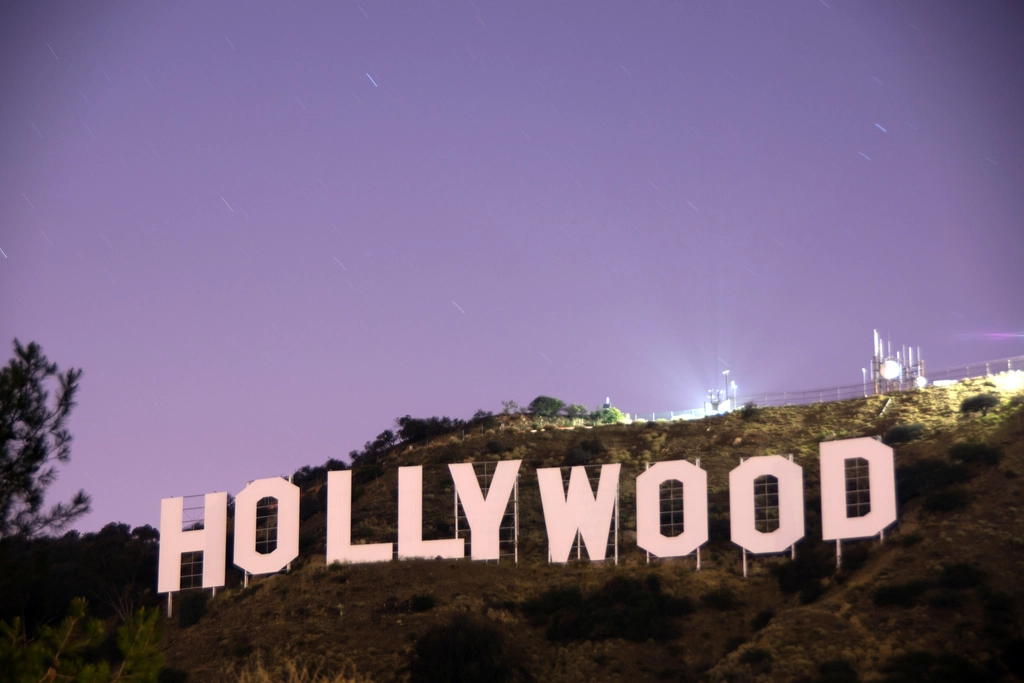
Every year, Hollywood’s biggest night, the Academy Awards, gathers cinephiles in anticipation, celebrating excellence within the American and international film industry. While the buzz is always electrifying, a familiar pang of disappointment, even outright indignation, often ripples through audiences when the envelope for the most coveted award of the night—Best Picture—is finally opened.
There’s a fascinating and rather enduring subgenre of great movies that, for reasons ranging from industry politics to the Academy’s occasional penchant for safer bets, simply didn’t take home the top prize. These are the films that critics and movie fans alike frequently argue were the rightful champions, movies that have, against all odds and despite the official record, gone down as some of the best movies of all time. They span compelling dramas, gripping thrillers, and even the kind of monumental blockbusters that reshaped cinema itself.
The Academy’s choices, while often celebrated in their moment, haven’t always endured in the cultural imagination in the same way as some of their overlooked counterparts. We’re about to embark on a journey through some of these legendary snubs, shining a spotlight on seven films that prove a golden statue isn’t the sole arbiter of greatness, and whose legacies have only grown richer with time. Prepare to revisit some truly magnificent cinema, and perhaps, to question what exactly the judges were thinking.

1. **Citizen Kane (1941)**
To even suggest that *Citizen Kane* didn’t win Best Picture feels almost blasphemous to modern film aficionados, given its status as arguably the greatest movie of all time. Orson Welles, at the astonishingly young age of 27, not only directed and co-wrote this artsy masterpiece but also commanded the screen in its starring role. It was a revolutionary achievement, particularly in its pioneering use of cinematography to weave thematic messages, creating visual poetics that were entirely new.
Every shot in *Citizen Kane* is meticulously crafted to express the anguish, loneliness, and passions of Charles Foster Kane, playing up his ego, mystery, and despair with a depth well beyond Welles’s years. This film didn’t just tell a story; it redefined how stories could be told on screen, marking it as a true landmark in cinematic history. Yet, despite its profound impact and critical praise, the Academy saw things differently that year.
In what was undeniably a competitive year, with formidable nominees such as *Here Comes Mr. Jordan*, *The Maltese Falcon*, *Sergeant York*, and *Suspicion*, *Citizen Kane* faced stiff competition. The Best Picture Oscar, then known as Outstanding Motion Picture, ultimately went to *How Green Was My Valley*. While John Ford’s film is an excellent and influential movie in its own right—a sentimental epic about a hardworking family—many have since argued it was less deserving of the top honor than Welles’s groundbreaking work. *Citizen Kane* did, however, secure an Oscar for Best Original Screenplay, a small consolation for a film that would echo through cinema for decades.
Read more about: 13 Moments of Pure Vision: Unpacking the Raw Drive of Cinema’s Most Influential Directors
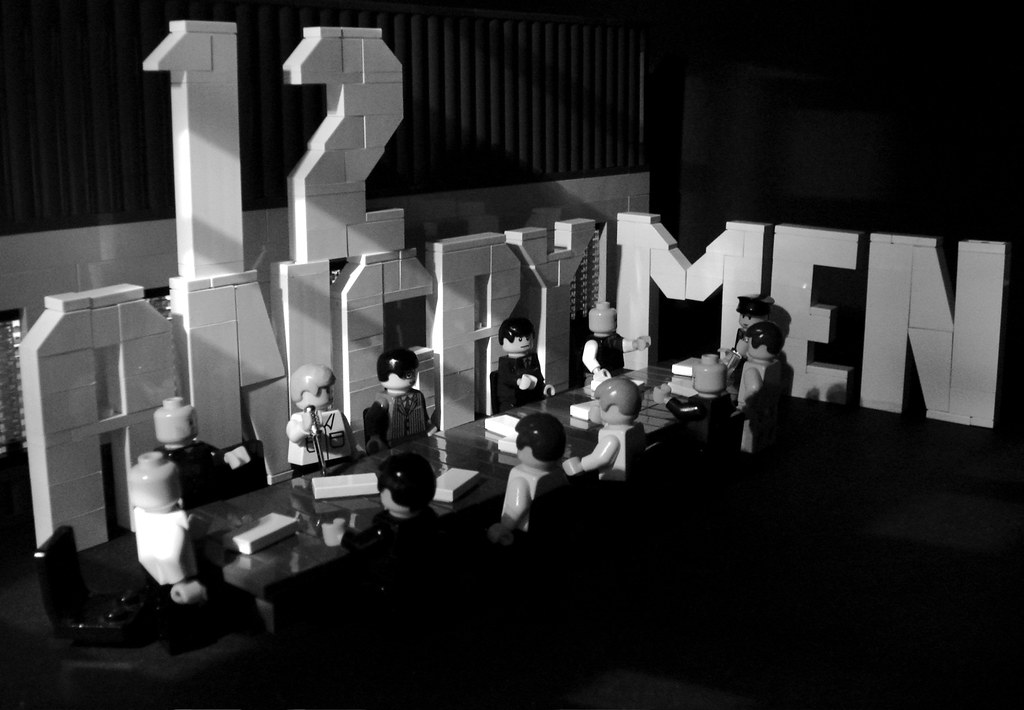
2. **12 Angry Men (1957)**
Sidney Lumet’s directorial debut, *12 Angry Men*, stands as an absolute masterclass in filmmaking, a taut and riveting exploration of the judicial process confined almost entirely to a single room. The film centers around its titular men, a jury grappling with the immense responsibility of deciding the guilt or innocence of a young boy accused of murder. This simple premise belies a profound depth, demonstrating how dialogue, performance, and pacing can create unparalleled dramatic tension.
What makes *12 Angry Men* so enduring is its timeless quality; it feels like it could belong to any era, a testament to its universal themes of prejudice, doubt, and the pursuit of justice. It meticulously dissects human nature under pressure, showing how individual biases and preconceived notions can sway judgment, and how a lone dissenting voice can challenge the status quo. The film’s command of dramatic tension, built purely through the escalating arguments and revelations among the jurors, remains unparalleled.
Despite its groundbreaking approach and undeniable power, *12 Angry Men* ultimately lost the Best Picture Oscar to *The Bridge on the River Kwai*. While David Lean’s film is certainly very good and far more traditional in its epic scope, it couldn’t match Lumet’s intimate, psychological intensity. In the 60-plus years since its release, countless courtroom dramas have attempted to emulate its brilliance, but few, if any, have managed to surpass the sheer impactful storytelling of Lumet’s seminal work.
Read more about: Bucket List Cinema: 14 Certified Fresh Movies You Absolutely MUST See Before You Kick the Bucket

3. **Psycho (1960)**
Alfred Hitchcock’s *Psycho* was nothing short of revolutionary cinema upon its premiere, audaciously breaking taboos around violence and cross-dressing, and fundamentally shaking up audience expectations. The film famously stunned and shook viewers by killing off its presumed star, Janet Leigh, in the first act, a narrative shock that cemented its legendary status and redefined storytelling conventions. This unexpected twist hooked audiences, propelling them forward into an unexpected and twisted ending.
Beyond its shocking plot, *Psycho*’s artistry is as genius as its plotting. The film is a masterclass in cinematic technique, employing gorgeous cinematography, heart-pounding editing, and groundbreaking sound design to create an atmosphere of suffocating suspense and psychological dread. Its iconic shower scene, in particular, remains one of the most studied and imitated sequences in film history, showcasing Hitchcock’s masterful control over his craft and his audience’s emotions.
Despite its profound influence and undeniable status as a cinematic treat, *Psycho* wasn’t even nominated for Best Picture. Had it been, it would have been up against Billy Wilder’s cynical love story, *The Apartment*, which ultimately took home the award. While *The Apartment* is a celebrated film that dips into themes of illicit affairs, it represents a more conventional choice compared to *Psycho*’s audacious and genre-defining horror. History, however, has overwhelmingly recognized *Psycho*’s monumental impact, solidifying its place as a horror masterpiece.
Read more about: 13 Moments of Pure Vision: Unpacking the Raw Drive of Cinema’s Most Influential Directors

4. **Dr. Strangelove or: How I Learned to Stop Worrying and Love the Bomb (1964)**
Stanley Kubrick’s *Dr. Strangelove or: How I Learned to Stop Worrying and Love the Bomb* is, admittedly, a lot to take in on a first viewing, and it’s certainly one of those films that benefits immensely from multiple viewings. This brilliant war satire is largely considered one of the best films ever made, a dark comedic masterpiece that skewers the absurdity and paranoia of the Cold War era with razor-sharp wit and profound intelligence. Kubrick’s vision here is unparalleled, blending black humor with a terrifyingly plausible scenario.
The film masterfully navigates the fine line between comedy and terror, presenting a chillingly hilarious portrayal of human folly and the catastrophic potential of nuclear war. Its ensemble cast delivers iconic performances, particularly Peter Sellers in multiple roles, bringing to life characters that are at once exaggerated and disturbingly real. The script is a tour de force, packed with memorable lines and incisive commentary on military bureaucracy and political brinkmanship.
In 1964, *Dr. Strangelove* was up against formidable competition, with *My Fair Lady* ultimately taking home the Best Picture Oscar. While *My Fair Lady* was undoubtedly a great movie—a lavish musical production—Kubrick’s war satire possessed a far more salient and urgent message. Its unflinching critique of power, the military-industrial complex, and the human capacity for self-destruction continues to resonate with chilling relevance, making its snub a poignant reminder of the Academy’s occasional preference for less confrontational fare.

5. **Jaws (1975)**
Steven Spielberg’s *Jaws* arrived in 1975 like a colossal wave, a summer blockbuster to end all blockbusters that fundamentally changed filmmaking as we knew it. This shark movie, an unlikely candidate for a Best Picture nomination in some regards, was a cultural phenomenon that hooked audiences worldwide with its relentless suspense and terrifying simplicity. It proved that a genre film could be both a commercial juggernaut and a work of high cinematic art.
What’s particularly remarkable is how *Jaws* has aged, despite its famously clunky practical effect shark. The film’s brilliance lies not in its visual effects alone, but in Spielberg’s masterful direction, the brilliant pacing, and John Williams’ iconic, anxiety-inducing score. It won three Oscars that year for Best Film Editing, Best Original Dramatic Score, and Best Sound, demonstrating its technical prowess and lasting impact on cinematic craft. The sheer tension built through suggestion and psychological terror made the actual shark almost secondary to the dread it inspired.
Despite its monumental impact on cinema, *Jaws* lost the Best Picture Oscar to *One Flew Over the Cuckoo’s Nest*. *Cuckoo’s Nest* is undoubtedly a great film, a powerful drama that deserved its accolades. However, the choice arguably came down to timing and genre conventions; the Academy has historically favored dramatic narratives over blockbuster thrillers, even those as impeccably crafted and culturally transformative as *Jaws*. Regardless of the snub, *Jaws* remains a masterclass in suspense and a film that continues to influence generations of filmmakers.
Read more about: Beyond the Script: 12 Iconic Moments Where Genuine Joy, Genius Improv, and Happy Accidents Made Movie History

6. **Taxi Driver (1976)**
Martin Scorsese’s *Taxi Driver* is a searing and unsettling portrait of urban alienation and psychological decay, a film that has stood the test of time as a truly groundbreaking work. It plunges audiences into the mind of Travis Bickle, an insomniac Vietnam veteran turned taxi driver, whose descent into madness and vigilante fantasies is as disturbing as it is compelling. Robert De Niro’s performance as Bickle is nothing short of legendary, capturing the raw intensity and fragile psyche of a man adrift in a morally corrupt world.
The film’s gritty, neon-soaked depiction of 1970s New York City serves as a perfect backdrop for Bickle’s isolation and growing disillusionment. *Taxi Driver* is a masterclass in mood and character study, using its unsettling atmosphere and Bickle’s unreliable narration to create a deeply immersive, often uncomfortable, experience. Its themes of loneliness, violence, and the search for meaning continue to resonate, making it a powerful and enduring piece of American cinema.
When faced with a comparison of Rocky Balboa’s scrappy success story in *Rocky* and Travis Bickle’s upsetting descent into madness in *Taxi Driver*, the Academy made the intuitive choice, awarding Best Picture to *Rocky*. This wouldn’t be the only time Martin Scorsese would be seemingly snubbed for the top prize, but *Taxi Driver*’s legacy has only grown stronger with each passing year. Its influence on subsequent filmmakers and its place in the pantheon of challenging, thought-provoking cinema are undeniable.
Read more about: The Architects of an Era: 7 Directors Who Mastered 70s Storytelling and Forever Changed Cinema
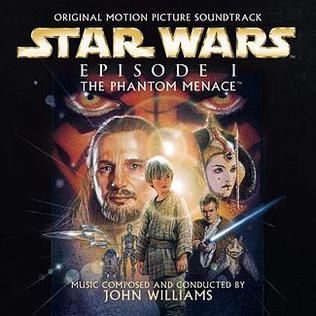
7. **Star Wars: Episode IV – A New Hope (1977)**
Looking back, *Star Wars: Episode IV – A New Hope* winning Best Picture might seem like a no-brainer, given its colossal cultural footprint and transformative impact on popular culture. However, in 1977, the first *Star Wars* film, despite its massive commercial success, wasn’t considered as ‘Academy-friendly’ as the more traditional films often recognized. It was a groundbreaking cinematic achievement that introduced audiences to a galaxy far, far away, blending mythic storytelling with revolutionary special effects.
This film, which launched one of the most beloved sagas in history, was more than just a space opera; it was an exercise in pure imaginative world-building. It created iconic characters, memorable dialogue, and a universe that captivated millions, redefining what a blockbuster could be. Its technical innovations were immense, pushing the boundaries of what was possible on screen and inspiring a generation of filmmakers and artists. The sheer scale of its ambition and execution was, and still is, astounding.
Ultimately, *Star Wars* lost the Best Picture Oscar to Woody Allen’s *Annie Hall*, a highly acclaimed romantic comedy. While *Annie Hall* is a brilliant film in its own right, beloved for its wit and narrative innovation, it’s fair to say that few films have changed filmmaking forever to the extent that *Star Wars* did. The Academy’s decision at the time reflects a common pattern: an underestimation of how much a commercially successful, genre-bending film would truly alter the landscape of cinema for decades to come.
Part 2: Modern Classics and Controversial Omissions – The Academy’s Lingering Blind Spots in Recent Decades.
Our journey through cinematic history continues, and as we move into later eras, a similar pattern emerges: the Academy, for all its pomp and circumstance, still occasionally misses the forest for the trees. These next films challenged or redefined genres, sparked cultural conversations, or demonstrated unparalleled artistic vision, yet somehow failed to secure the Best Picture Oscar. We will explore the persistent reasons behind these notable snubs and consider how time has consistently vindicated the artistic merit of these enduring works, much to the exasperation of cinephiles everywhere.
Read more about: Beyond Fantasia’s Pages: Uncovering 14 ‘NeverEnding Story’ Actors You Didn’t Know We Lost

8. **The Shining (1980)**
Speaking of Stanley Kubrick, the director whose *Dr. Strangelove* was notably overlooked, his later work, *The Shining*, boasts an Oscar history that is peculiar even by Academy standards. This isn’t a case of losing Best Picture; it’s a colossal omission, as the film wasn’t even nominated for a single Academy Award, astonishingly garnering several Razzie nominations instead. Yet, as time has a way of correcting initial misjudgments, history has overwhelmingly reclaimed *The Shining* as a modern horror masterpiece, making its original snub a testament to how profoundly misunderstood some groundbreaking films can be upon release.
Kubrick’s distinctive directorial style is on full, terrifying display here, transforming Stephen King’s novel into a chilling, psychologically dense cinematic experience. The film’s atmosphere of suffocating dread, its iconic imagery like the blood flooding the elevator or the unsettling Grady twins, and its masterful use of space and sound design, all contribute to a horror film that operates on a level far beyond jump scares. It delves into themes of madness, isolation, and domestic terror with a relentless artistry that few genre films can rival, ensuring its place as a perennial subject of academic and fan discussion.
Jack Nicholson’s performance as Jack Torrance is nothing short of legendary, a visceral descent into insanity that anchors the film’s increasingly surreal narrative. The film’s lasting cultural impact is undeniable, from countless references in pop culture to its enduring power to unnerve new generations of viewers. When juxtaposed with 1980’s Best Picture winner, *Chariots of Fire*—a fine film in its own right—the Academy’s complete disregard for *The Shining* raises questions about their criteria for what constitutes true cinematic excellence, particularly when faced with a work that dares to transcend genre conventions.
Perhaps its slow-burn nature and unconventional narrative, which eschews clear-cut explanations for psychological ambiguity, made it less palatable for mainstream awards recognition at the time. However, the intricate layering of its themes, its unparalleled tension, and its groundbreaking visual language have ultimately cemented *The Shining*’s place not just as a horror touchstone, but as a vital and intensely studied piece of cinematic art. It stands as stark proof that true greatness often takes time and repeated viewings to be fully appreciated.
Read more about: 13 Moments of Pure Vision: Unpacking the Raw Drive of Cinema’s Most Influential Directors
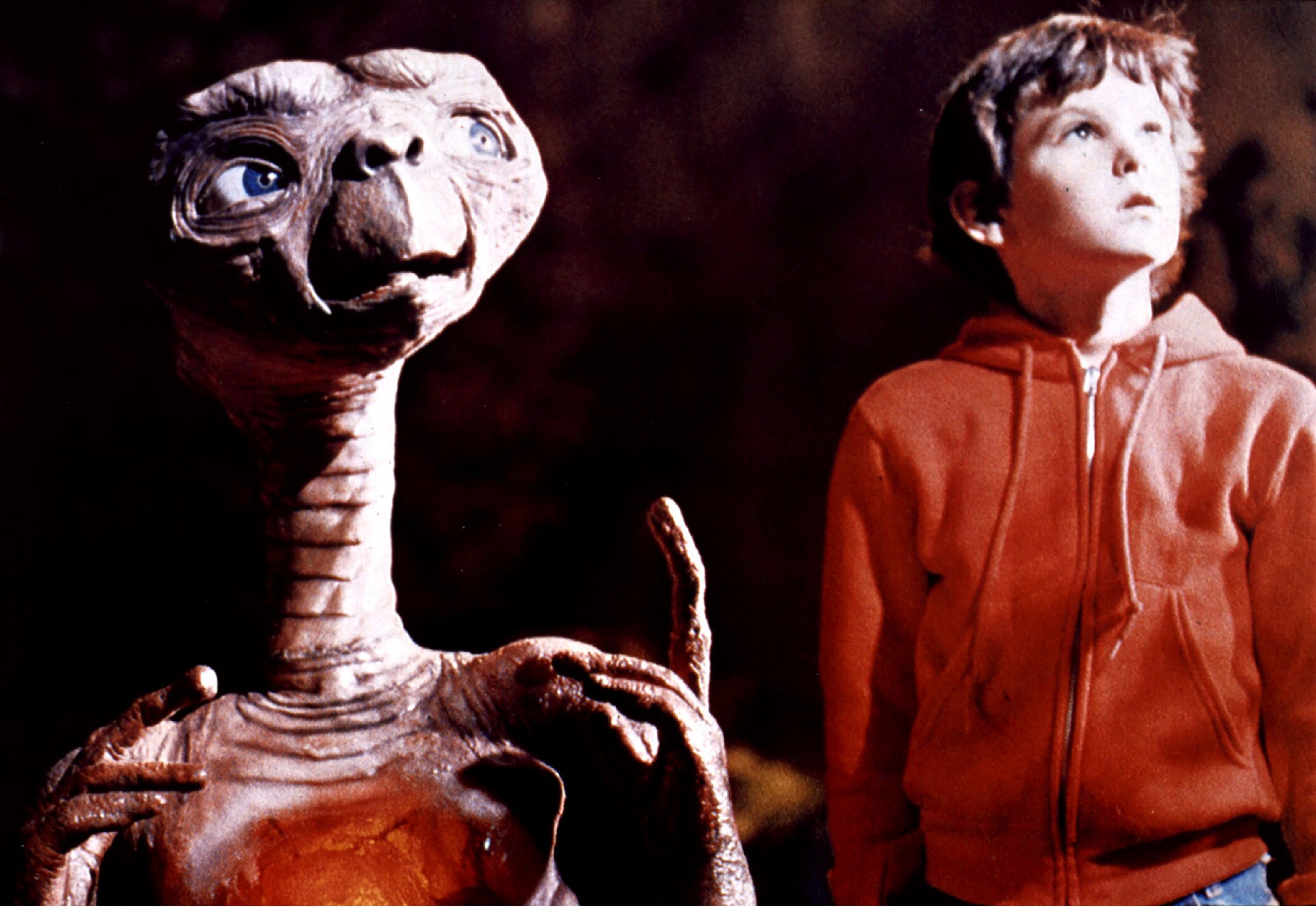
9. **E.T. the Extra-Terrestrial (1982)**
Steven Spielberg has a knack for creating films that resonate deeply with audiences, and *E.T. the Extra-Terrestrial* arrived in 1982 as a pure cultural phenomenon. This wide-eyed alien instantly stole America’s heart, becoming an instant blockbuster that captivated millions with its fantastical narrative and profoundly sentimental, tear-jerking family drama. It brilliantly demonstrated that a film could be both a commercial juggernaut and a work of high emotional artistry, appealing to a vast audience with its undeniable charm and universal themes.
Beyond its science fiction premise, *E.T.* truly shines in its exploration of human connection and belonging. The alien, despite its otherworldly origins, becomes incredibly relatable, a friend to a lonely boy navigating the complexities of a suburban household run by a single mom. The film is masterfully filled with moments of both comedy and heartfelt drama, tapping into universal childhood hopes and fears, allowing it to resonate powerfully with adults and children alike. It’s a poignant portrayal of friendship, empathy, and the bittersweet nature of saying goodbye.
Spielberg’s cinematic mastery is evident in every frame of this film. It is a true masterwork of storytelling, marked by beautiful compositions that capture its universal themes, from the iconic bicycle flight against the moon to the quiet moments of connection between Elliott and E.T. The film’s ability to craft an emotional narrative that transcended typical genre confines, combining groundbreaking visual effects with a deeply human story, made it a technical marvel that pushed emotional boundaries for its era.
Yet, for all its immense impact and artistry, *E.T. the Extra-Terrestrial* ultimately lost the Best Picture Oscar to *Gandhi*. While the historical biopic *Gandhi* is an important and well-regarded film, the Academy’s historical preference for “serious” dramas over genre-bending blockbusters meant *E.T.* faced an uphill battle. This decision underscores a recurring tension in Oscar history: the struggle between celebrating profound cultural impact and acknowledging more traditional, gravitas-laden narratives, leaving *E.T.* as an enduring symbol of a film that deserved top honors for its sheer, unadulterated magic and widespread resonance.
Read more about: The Box Office Bombs and Blockbusters: How Financial Realities Shaped Steven Spielberg’s Unrivaled Cinematic Journey
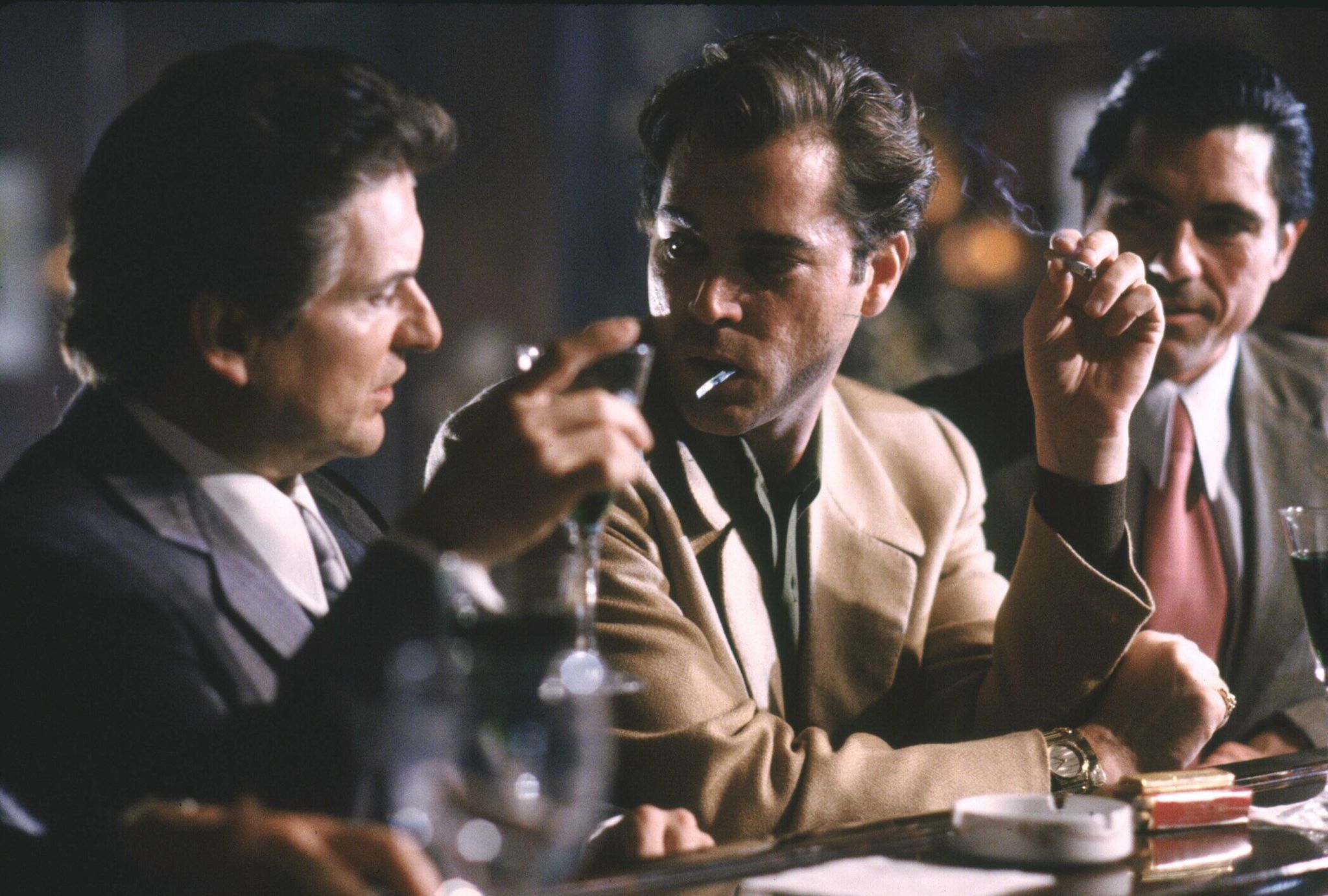
10. **GoodFellas (1990)**
For many film aficionados, the Best Picture snub of Martin Scorsese’s *GoodFellas* in 1990 remains one of the most painful in Academy history. This sprawling mob boss epic is widely considered one of the best films of the ’90s, a true “watershed film” that irrevocably influenced nearly every gangster movie and crime drama made in its wake. It stands as a powerful example of the Academy’s occasional oversight, particularly when facing a director whose distinct vision often challenges conventional tastes.
*GoodFellas* is a masterclass in cinematic style, immersing viewers directly into the exhilarating, yet ultimately brutal, world of the mafia. Scorsese’s signature techniques—rapid-fire editing, groundbreaking use of voice-over, innovative tracking shots, and a perfectly curated soundtrack—create an electrifying, visceral experience. The ensemble cast, featuring career-defining performances from Robert De Niro, Joe Pesci (who won Best Supporting Actor), and Ray Liotta, portrays a world where loyalty and betrayal are two sides of the same bloody coin, all without ever romanticizing the criminal life.
Indeed, when Martin Scorsese’s *The Departed* finally won Best Picture in 2006, it felt to many like a lifetime achievement award, an acknowledgment of past snubs rather than a singular win. The debate over which of Scorsese’s films is his absolute best often circles back to *GoodFellas*, a testament to its profound and visible impact on “the last few decades of cinema.” Its influence is so pervasive that it’s difficult to imagine modern crime cinema without its stylistic and narrative innovations, underscoring its pivotal role in film history.
Ultimately, *GoodFellas* lost the top prize to Kevin Costner’s *Dances With Wolves*, a sprawling Western epic. While *Dances With Wolves* is a commendable film, its “lasting impact” is frequently questioned when placed alongside the raw, innovative, and endlessly rewatchable *GoodFellas*. This comparison perfectly encapsulates the Academy’s occasional preference for conventional, large-scale narratives over genre-redefining masterpieces, making *GoodFellas* an enduring symbol of a film whose greatness was perhaps too ahead of its time for the voters.
Read more about: The Architects of an Era: 7 Directors Who Mastered 70s Storytelling and Forever Changed Cinema
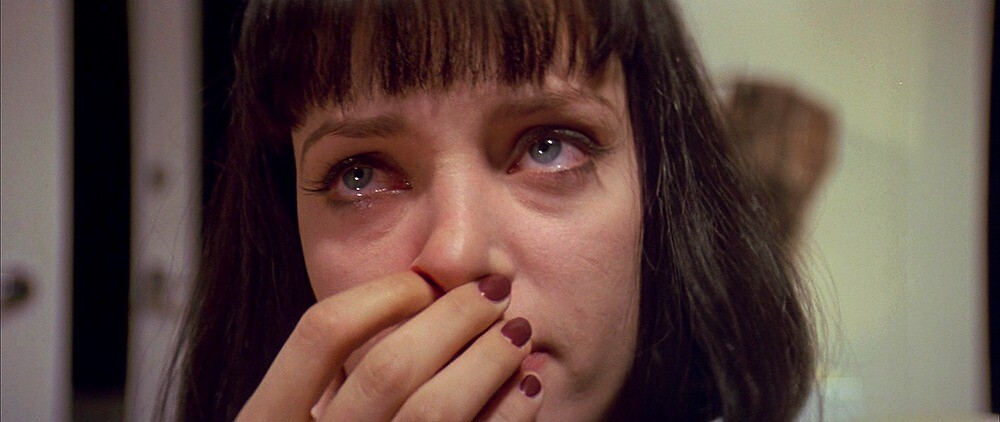
11. **Pulp Fiction (1994)**
In what is arguably “the most controversial Best Picture loss of all time,” Quentin Tarantino’s *Pulp Fiction* famously couldn’t beat out the heartwarming power of *Forrest Gump* in 1994. This outcome was widely seen as a “clash between generations and moviemaking sensibilities,” a cultural dividing line that still sparks passionate debate, with fervent fans of Tarantino more than happy to elaborate, in detail, why his audacious film was the rightful victor.
*Pulp Fiction* wasn’t just a movie; it was a cultural earthquake that redefined independent cinema and forever altered the landscape of filmmaking. Tarantino’s ingenious non-linear narrative structure, his sharp, witty, and endlessly quotable dialogue, and his bold, idiosyncratic blend of humor, violence, and pop culture references created a cinematic language entirely new. It was a film that dared to be different, delivering a fresh, audacious vision that captivated and challenged audiences in equal measure, cementing its status as an instant classic.
The film’s iconic status is undeniable, its “hugely recognizable references to this day” pervading pop culture, even for those who may not have seen the film in its entirety. From the unforgettable dance scene between Vincent Vega and Mia Wallace to its distinctive character interactions and unforgettable lines, *Pulp Fiction* carved out an indelible niche in the zeitgeist. It demonstrated that independent films could achieve massive commercial success and critical acclaim, pushing boundaries in storytelling and style that resonated globally.
While *Pulp Fiction* did secure an Oscar for Best Original Screenplay, a small consolation, its loss in the Best Picture race to *Forrest Gump* remains a sore spot for many. *Forrest Gump*, with its more traditional, sentimental narrative, undeniably struck a chord with mass audiences and the Academy. However, *Pulp Fiction*’s rebellious spirit, its innovative structure, and its profound, lasting influence on cinematic discourse made it the more impactful and, many would argue, the more “best” picture, exemplifying a moment where the Academy’s choice diverged sharply from what the future would declare a masterpiece.
Read more about: They’ve Got the Receipts! Meet the 10 Highest-Grossing Actors Dominating Hollywood’s Box Office

12. **Fargo (1996)**
From the distinctive minds of the Coen Brothers, *Fargo* emerged in 1996 as a darkly comedic masterpiece, swiftly becoming “one of the most influential (and satirically funny) films ever,” even inspiring a beloved television series of the same name. Its unique tone and unsettling blend of crime and absurdity presented a stark contrast to the more “classic Oscar choice” of *The English Patient*, highlighting another instance where the Academy chose a sweeping romance over a singularly original vision.
*Fargo*’s cinematic brilliance is rooted in its distinctive aesthetic and unforgettable characters. Set against the bleak, snow-covered landscape of Minnesota, the film introduces a world populated by idiosyncratic individuals navigating a spiraling sequence of ill-conceived crimes. The Coens expertly blend grim violence with moments of profound, almost surreal humor, creating a tone that is both deeply unsettling and strangely endearing. Frances McDormand’s Oscar-winning performance as the pregnant police chief Marge Gunderson—a beacon of quiet competence and moral decency amidst grotesque chaos—is a cornerstone of its enduring appeal.
The film’s lasting influence extends beyond its direct adaptation, inspiring countless crime dramas and independent films that have attempted to emulate its specific blend of realism, quirky stylization, and narrative tension. *Fargo* proved that a story about small-town crimes could be both deeply unsettling and hilariously absurd, carving out a unique niche in cinematic history and showcasing the Coen Brothers’ unparalleled ability to craft a truly original world. Its tightly constructed plot, memorable dialogue, and striking visuals ensure its place in the pantheon of modern classics.
Despite its critical adoration and significant cultural impact, *Fargo* lost the Best Picture Oscar to *The English Patient*, a lavish “sweeping war romance.” While *The English Patient* is undoubtedly a well-crafted and acclaimed film, *Fargo*’s originality, its singular voice, and its enduring cultural footprint have arguably outlasted its Best Picture competitor in the public consciousness. Its snub serves as a poignant reminder of the Academy’s often conservative tastes and its tendency to favor traditional epic narratives over innovative, genre-bending works that resonate for decades.
Read more about: The Last Curtain Call: 11 Iconic DC Actors Whose Enduring Impact Fans Deeply Miss
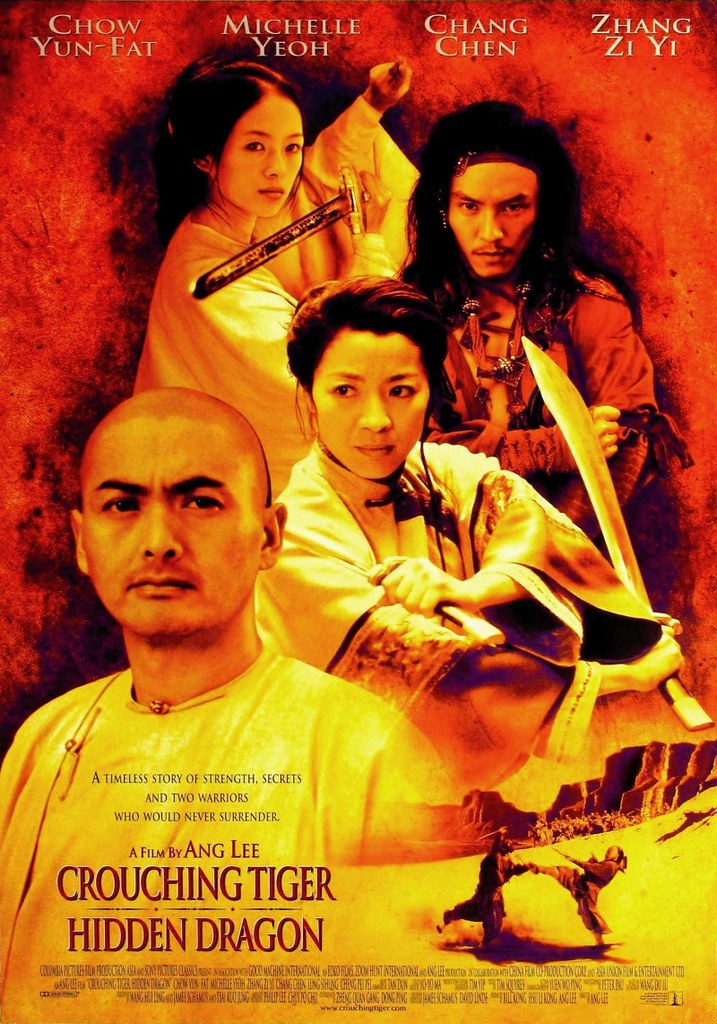
13. **Crouching Tiger, Hidden Dragon (2000)**
In the year 2000, two “epic action films that were both exceptional stories” vied for the Best Picture Oscar: Ridley Scott’s *Gladiator* and Ang Lee’s magnificent *Crouching Tiger, Hidden Dragon*. Ultimately, the Academy “favored Russell Crowe” and the Roman coliseum over the breathtaking, high-flying martial arts artistry of Chow Yun-fat, Michelle Yeoh, and Zhang Ziyi. This choice highlighted the Academy’s persistent, albeit slowly changing, relationship with international and genre-defying cinema.
*Crouching Tiger, Hidden Dragon* was more than just a martial arts film; it was a poetic wuxia epic that became a global phenomenon, captivating audiences worldwide with its stunning cinematography, breathtaking wire-fu choreography, and deep emotional resonance. It shattered preconceived notions of what a foreign-language film could achieve in terms of mainstream appeal and critical acclaim in the West, breaking barriers and becoming the highest-grossing non-English language film in American history at the time. It was a groundbreaking achievement on multiple fronts.
Ang Lee masterfully crafted a narrative that transcended cultural barriers, exploring universal themes of love, duty, freedom, and identity through its compelling characters and their gravity-defying battles. The film’s visual splendor, coupled with its philosophical undertones and intricate emotional tapestry, made it much more than just an action spectacle. It was a deeply moving drama disguised within the exhilarating framework of an action-adventure, showcasing a sophisticated blend of genre and artistry that resonated deeply with viewers across the globe.
Despite its groundbreaking impact and widespread acclaim, *Crouching Tiger, Hidden Dragon* lost the Best Picture Oscar, though it did secure four other Academy Awards, including Best Foreign Language Film. The Academy, perhaps still reluctant to bestow its absolute top prize on a non-English language film, ultimately chose the more traditional, albeit excellent, historical epic *Gladiator*. Yet, *Crouching Tiger, Hidden Dragon*’s legacy is firmly secure as a film that opened significant doors for international cinema, proving that universal stories, when told with such artistry and vision, could truly soar on a global stage, regardless of language or previous genre limitations.

14. **ROMA (2018)**
Alfonso Cuarón’s *ROMA* stands as an “awesome” cinematic “gem” that, despite its profound critical acclaim, found itself embroiled in a “larger issue” surrounding its Best Picture loss to *Green Book* in 2018. The controversy surrounding *Green Book*’s win, which “drew criticism for its depiction of race” and overlooked other powerful nominees like *BlacKkKlansman*, *Black Panther*, and *A Star Is Born*, only further underscored the perceived misstep in choosing it over Cuarón’s masterful work.
*ROMA* is an intimate yet epic cinematic achievement, shot in breathtaking black and white, serving as a deeply personal and immersive experience. Cuarón meticulously draws viewers into the life of Cleo, a domestic worker for a middle-class family in 1970s Mexico City, using long, sweeping takes and subtle storytelling to create an almost documentary-like intimacy. This meticulous direction and understated narrative technique make the mundane feel profoundly epic, elevating everyday moments to the realm of high art.
The film’s emotional depth and universal themes resonate far beyond its specific setting, exploring complex dynamics of class, race, gender, and family with a tenderness and honesty that captivated audiences globally. It is a quiet masterpiece that finds grand narratives in the seemingly ordinary moments of life, showcasing Cuarón’s extraordinary ability to evoke powerful emotions and societal critiques without resorting to overt melodrama. *ROMA* is a poignant meditation on memory, loss, and the resilience of women, leaving an indelible mark on those who experience it.
Confronting the Best Picture outcome, *ROMA*’s loss to *Green Book* remains a contentious point in recent Oscar history. While *Green Book* was popular with many at the time, its win quickly became a subject of intense debate due to its perceived simplistic and outdated portrayal of racial issues. *ROMA*, by contrast, offered a nuanced, artful, and unflinching look at societal complexities, and its snub underscores a recurring debate about the Academy’s choices and their long-term cultural impact. Its enduring critical adoration, alongside its success in categories like Best Director, firmly cements its place as a modern classic that was, in the view of many, unfairly denied the top honor.
Read more about: From Man With No Name to Oscar Gold: A Ranked Journey Through Clint Eastwood’s Legendary Film Career
As we conclude our retrospective on the greatest movies that, against all odds, didn’t claim the Best Picture Oscar, a clear picture emerges. The Academy Awards, for all their glitz and glamor, are but a snapshot in time, a reflection of prevailing tastes and, sometimes, an institutional blind spot. Yet, true cinematic brilliance, whether lauded in its moment or discovered decades later, always finds its way into the cultural imagination. These films, from revolutionary genre-benders to intimate, personal epics, prove conclusively that a golden statue, while coveted, is not the sole arbiter of greatness. Their legacies have only grown richer, their influence more profound, and their status as bona fide masterpieces more undeniable, reminding us that the real awards are often bestowed not by committees, but by the relentless judgment of time and the enduring love of audiences. Perhaps, then, these are not snubs, but rather a unique form of validation, placing these films in a league of their own: the truly timeless, forever etched in the annals of cinema’s greatest achievements.



